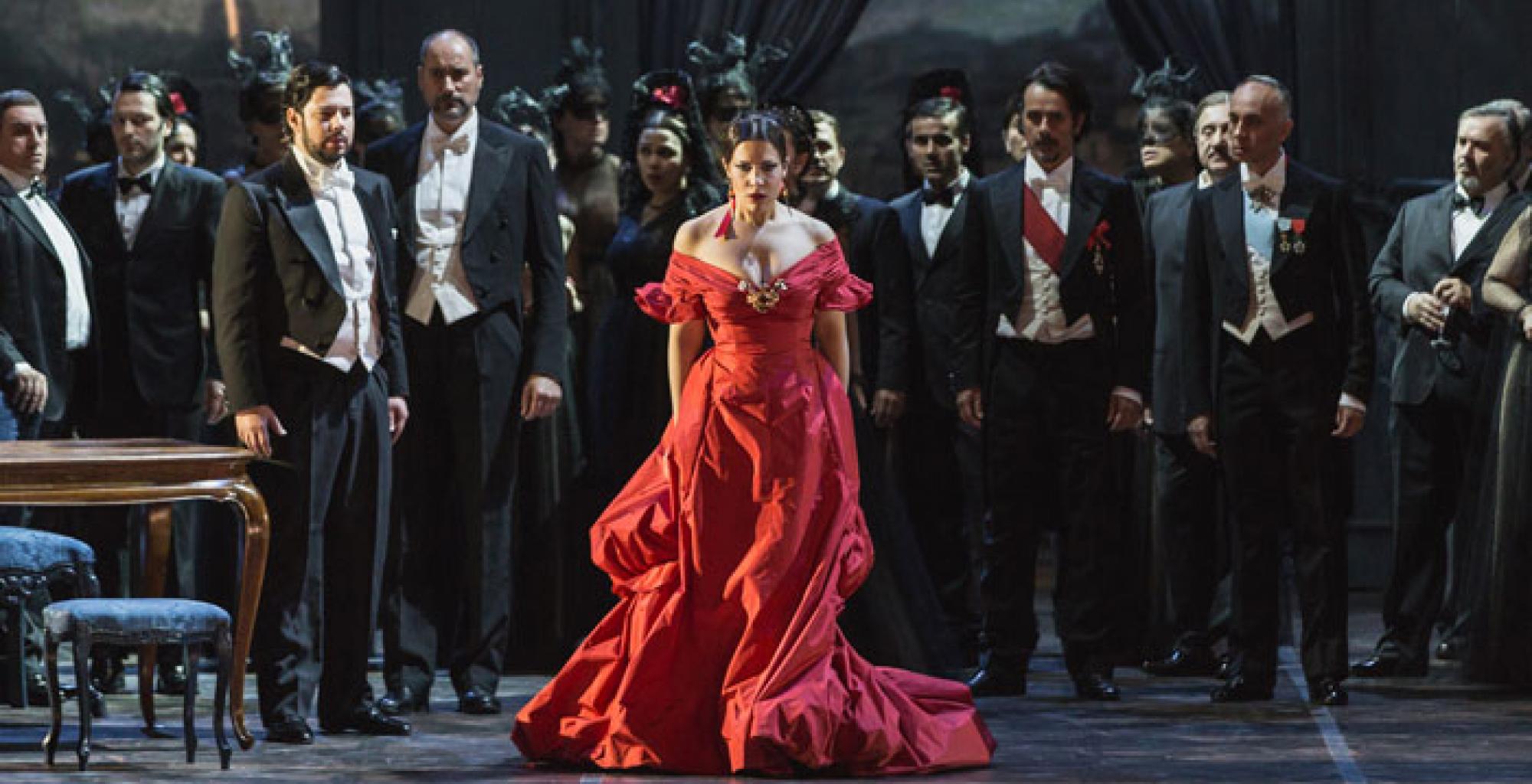This film presentation by Palace Nova Cinemas (at Prospect) of La Traviata with music by Giuseppe Verdi set and libretto by Francesco Maria Piave, was captured live from Teatro Costanzi, Rome 24 May 2016, but only recently screened at cinemas.
La Traviata is one of the most accessible and popular operas ever. It is perfect for anyone who is opera-curious and the cinema is a safe way to lose your ‘opera cherry’ if you are a newbie! This screening lasted for 2 hours 20 minutes with no intermission, so go to the loos beforehand!
La Traviata is brim full of luscious music and gorgeous singing – it is never heavy – and the story line is as relevant today as it was when it was first premiered in 1853.
Based on La Dame aux Camélias by Alexandre Dumas, whose father was the famous novelist of the same name, La Traviata is about Violetta, a high-class courtesan (which is a so much nicer word than prostitute!). She falls in love with the well-to-do Alfredo and they both escape Paris, live in the country, and forget their former lives. Alfredo’s father, Germont, visits Violetta and explains that his daughter, Alfredo’s sister, is about to be abandoned by her suitor because he does not want the taint of a courtesan as a potential in-law. Germont pleads with Violetta to abandon Alfredo, which after much soul searching she reluctantly agrees to do out of love for Alfredo and respect for his family. Violetta returns to Paris and to her former life but is tracked down by Alfredo who vents his anger and hurt, and publically humiliates Violettta. Soon after he comes to his senses and visits Violetta. He is deeply apologetic and wants to make amends, but it is too late as Violetta has a terminal illness to which she succumbs.
Directed by Oscar-winning filmmaker Sofia Coppola (The Beguiled, Lost in Translation, Marie Antoinette), in her opera directorial debut, costumed by Italian haute couture designer Valentino, and designed by Hollywood production designer Nathan Crowley (Dunkirk), one should expect this production to be lavish, which it is. It looks sumptuous and the visual pleasure is only exceeded by the quality of the principal cast members comprising soprano Francesca Dotto as Violetta, tenor Antonio Poli as Alfredo, and Roberto Frontali as Germont.
Violetta is a huge role, with the singer rarely off stage. Dotto looked stunning in her Valentino gowns, and her beautiful voice was a match for the difficult vocal score. Poli has a warm and rounded tenor voice, but there appeared to be little chemistry between him and Dotto, expect for the scene where Alfredo humiliates Violetta, where we saw a rare display of the youthful passion one would expect from Alfredo throughout. For this reviewer, the real standout was Frontali. His scene with Violettta where he beseeches her to give up Alfredo was superb. We saw the conflicted emotion of a father doing what he must for the sake of his daughter knowing that it would devastate his son. His rich baritone voice blended perfectly with Dotto’s fine soprano line. Frontali can sing, and he can act.
The set design was impressive, and its expanse served to highlight the isolation of Violetta, but to this reviewer it foiled the intimacy that the opera demands. Conductor Jader Bignamini led the Orchestra of the Teatro dell’Opera di Roma in a spirited reading that never overshadowed the soloists.
Check out the official site here.






















